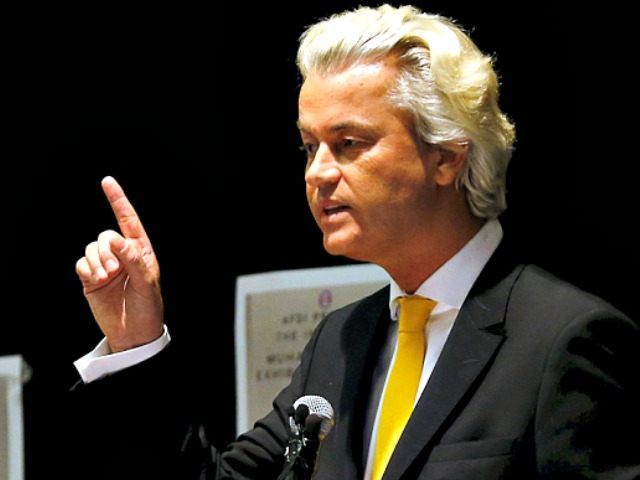Dutch far-right leader Geert Wilders called the wave of refugees pushing into Europe an “Islamic invasion”, during a parliamentary debate on Thursday that exposed deep divisions over how the Netherlands should respond to the crisis.
European Commission chief Jean-Claude Juncker on Wednesday appealed to EU members to share out refugees arriving on the bloc’s fringes. Several EU countries oppose the idea of mandatory quotas, as supported by German Chancellor Angela Merkel, and the conservative Dutch government says it is only willing to take in more if all EU states agree.
At the start of the debate, Wilders called the wave of refugees passing through Hungary and other countries “an Islamic invasion of Europe, of the Netherlands.”
“Masses of young men in their twenties with beards singing Allahu Akbar across Europe. It’s an invasion that threatens our prosperity, our security, our culture and identity,” he said.
Tens of thousands of people, many fleeing war and Islamic State in Syria, are trying to get to Germany where Merkel has said they will be allowed to stay. Wilders said the fact that they were pushing northwards through the EU from the Mediterranean indicated many were economic migrants, not refugees.
“Turkey, Greece, Macedonia, Serbia are safe countries. If you flee them then you are doing it for benefits and a house,” said Wilders, whose Party for Freedom leads Dutch opinion polls.
Roughly 54 percent of Dutch voters are opposed to accepting more than roughly 2,000 refugees previously agreed, a poll from last week showed. Under the latest proposals that figure is seen rising to more than 9,000.
Prime Minister Mark Rutte’s government said on Friday it was willing in principle to accept a larger share of asylum seekers, but only as a “temporary solution”.
In the long term, the Dutch want better shelters for refugees near conflict zones and will donate 110 million euros ($123 million) this year to improve capacity in and near Syria.
Jesse Klaver of the opposition GreenLeft said: “We should agree with the request of the European Commission unconditionally and without differentiating between the short and long term.”
Rutte’s fragile coalition government nearly split in April over asylum policy. The government plans to toughen its stance by cutting off food and shelter after a few weeks for those whose claims for refugee status are turned down.
It was not clear whether lawmakers would vote on the issue after their debate.

COMMENTS
Please let us know if you're having issues with commenting.